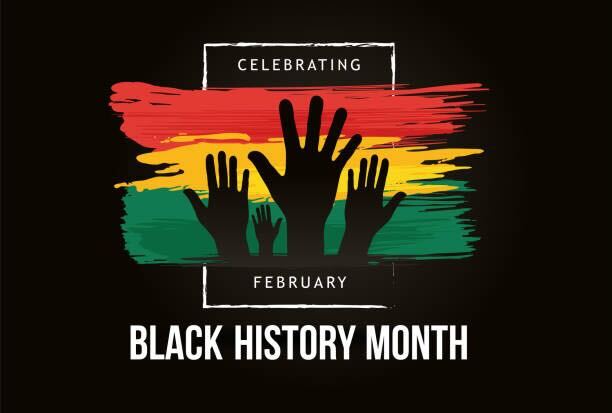
By Ayman Chowdhury, Director, Programs & Advisory at Competent Boards.
As we delve into the celebration of Black History Month, it becomes a pivotal moment to engage in a profound reflection on the essence of diversity, equity, and inclusion (DEI) within our societies. The significance of this month transcends mere recognition; it embodies a powerful vehicle for combatting the backlash against DEI initiatives—a backlash that not only stalls progress but fundamentally challenges the principles of justice, equality, and the inclusivity that are foundational to any equitable society. Black History Month does not merely commemorate; it acts as a beacon, illuminating the struggles, triumphs, and enduring contributions of Black individuals throughout history. It plays a crucial role in affirming the importance of DEI by championing the diverse experiences and perspectives that enrich our collective human tapestry.
The Historical Context and Today’s Evolving Challenges
Globally, Black History Month offers a dedicated period to honor the histories, achievements, and contributions of Black individuals, adapted by each country to reflect its unique cultural and historical context. In the United States and Canada, February is earmarked for celebrating the legacies of African Americans and Black Canadians. Across the Atlantic, the United Kingdom dedicates October to commemorating its Black Britons and the wider African and Caribbean diaspora. Similarly, countries like The Netherlands and others around the world host their commemorations, each highlighting the profound influence of Black individuals within their societies.
This global observance not only pays homage to the often-overlooked accomplishments of Black people but also furthers the cause of DEI by fostering a greater appreciation for the diversity and resilience of Black communities globally. It challenges us to weave diverse narratives into the fabric of our collective history—narratives that have been marginalized for too long.
Despite the noticeable benefits of such initiatives towards crafting more inclusive societies, there exists a growing resistance. Critics of DEI efforts brand these initiatives as divisive or unnecessary, claiming they serve to discriminate against non-minority groups. This backlash not only underscores a significant misunderstanding of DEI’s objectives but also threatens the strides made towards fostering a more equal and understanding society.
The Transformative Power of Black History Month
The essence of Black History Month lies in its capacity to prompt reflection, dialogue, and action. It calls upon corporations and individuals alike to consider societal values and engage in meaningful discussions aimed at forging an inclusive and equitable future. This dialogue is vital for cultivating a culture of openness, learning, and collective action. By valuing continuous improvement and fostering open dialogue, corporations can significantly influence the trajectory towards a more inclusive future.
Moreover, this observance offers a moment for introspection and tangible action against systemic inequalities. It’s an opportunity for organizations to reassess their policies, practices, and cultures to ensure they align with the principles of equity and inclusion. This commitment to action must persist beyond the month, embedding equity and inclusion into the very identity of organizations.
Some Inspiring Examples
- Google is actively working to enhance Black+ representation at senior levels, with a specific goal of increasing leadership representation of underrepresented groups by 30% by 2025. This effort is part of a broader commitment to cultivate a stronger sense of inclusion and belonging for all Googlers, particularly within the Black+ community. Furthermore, Google is implementing a wide array of anti-racism educational programs that have a global perspective and are scalable across the organization. Additionally, Google is focused on better supporting the mental and physical health and well-being of the Black+ community, demonstrating its comprehensive approach to creating a more inclusive and supportive workplace.
- Microsoft’s Racial Equity Initiative specifically aimed at supporting the Black community and focused on addressing racial injustice within the core US Microsoft business. This initiative reflects a broader commitment to diversity, equity, and inclusion, emphasizing actions and strategies to enhance representation and foster an inclusive environment for Black and African American employees
- Walmart joined the OneTen Coalition as part of a commitment to upskill, hire, and promote one million Black and African American individuals over ten years into family-sustaining careers. In addition, Walmart and the Walmart Foundation supported the Association of Black Foundation Executives (ABFE) efforts to improve accountability for fulfilling corporate pledges and to establish the ABFE Corporate Funding Community of Practice, which seeks to build skills, connections, and capacity of Black leaders in corporate giving roles.
Moving Forward: The Imperative of Sustained DEI Efforts
The celebration of Black History Month provides a unique and potent platform for organizations to reinforce their commitment to DEI. By actively participating in this observance, companies not only signal their dedication to these principles but also strategically address the backlash against DEI initiatives. It’s important to recognize that resistance to DEI reflects a reluctance to embrace change and a preference for outdated notions of homogeneity, which no longer serve our globalized society. Opposing DEI efforts is counterproductive and undermines the social fabric of our communities.
The true essence of Black History Month—and indeed, all DEI initiatives—is to foster understanding, acceptance, and celebration of our differences. Through this, we can build more robust, united communities. As we honor Black History Month, let us remember that the journey toward diversity, equity, and inclusion is ongoing. It demands active participation from each of us to create an environment where everyone, irrespective of their background, is afforded the opportunity to thrive and contribute meaningfully to society. This continuous journey towards DEI is not just a moral imperative but a societal necessity, enabling us to harness the full potential of our diverse world for the betterment of all.
Back To News & Views